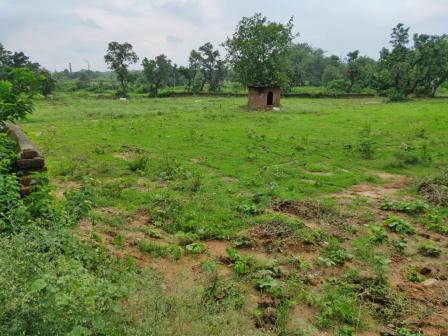Dhanbad Municipal Corporation’s plan to establish a waste to energy plant has hit another roadblock.
Part of Phase II of the Integrated Solid Waste Management Project, the undertaking has been meeting with hurdles involving the unavailability of land.
About 18.81 acres of land, owned by the Jharkhand Mineral Area Development Authority (JMADA), at Aamjhar in Baliapur was identified last for the project.
JMADA have now expressed their unwillingness to hand over the site to DMC due to various reasons, including the paucity of funds. The civic body has been coping to make regular payment of salaries to employees.
Talking to The Telegraph Online, Indresh Shukla, executive engineer cum technical member, JMADA, said, “The 17.81 acres of land will be of no use to DMC. It requires at least 40 acres, because the waste to energy plant will also serve as waste to compost plant.”
He further noted, “This is raiyati land owned by the JJMDA, and the DMC has asked for free of cost transfer. In the present situation, where we are struggling to even pay our own employees, a no cost transfer is off the table. There can be multiple uses for the plot like developing it as a market complex, like those in Topchanchi, Chirkunda, Nirsa, Rajganj and Govindpur.”

18.81 acres of land, owned by the Jharkhand Mineral Area Development Authority (JMADA), at Aamjhar in Baliapur. Gautam Dey
Dhanbad municipal commissioner Chandramohan Kashyap earlier wrote to state the Urban Development Department to ensure transfer of the JMADA land..
30 acres of land in Sindri, belonging to the Fertilizer Corporation of India, was earlier identified for the project. Various procedural delays, along with cost issues compelled the DMC to search for another plot.
Only seven out of the total 30 required compactor stations have been provided by the DMC ever since the door to door collection began last year as part of the Integrated Solid Waste Management Project.
From the initial 21 wards, the number gradually increased to 49 out of total 55 wards spread over five circles including, Jharia, Dhanbad, Sindri, Katras and Chhatatand.
Once established, the waste to energy plant will produce six megawatt of electricity per day. The plant capacity will enable the production of one megawatt of power from 100 tonnes of garbage. All 55 wards are expected to produce 600 tonnes of garbage per day.
The dry waste will be used to produce power, besides ancillary products like tiles. The wet waste will be utilised as manure.











